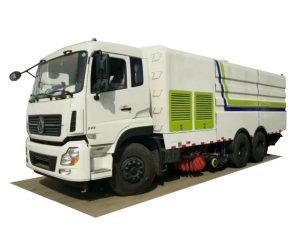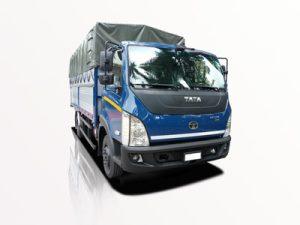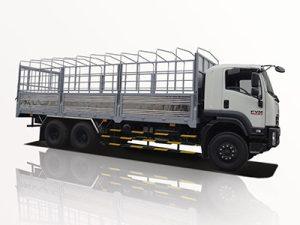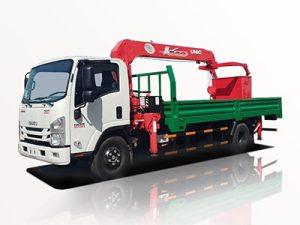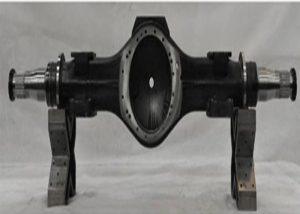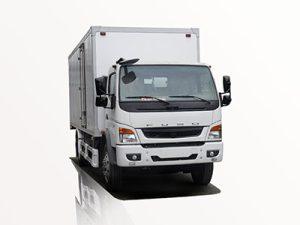Monday to Saturday - 8:00 -17:30
Japanese Semi Trucks: A Comprehensive Guide to Their Features, Benefits, and More
Introduction
Japanese semi trucks have gained notable recognition in the trucking industry worldwide. Known for their durability, efficiency, and innovative design, these trucks are a popular choice among logistics companies and independent truckers alike. This article explores everything you need to know about Japanese semi trucks: their history, different models, specifications, market trends, maintenance tips, and much more. Whether you are an industry professional or an enthusiast, this detailed guide will provide valuable insights.
The Evolution of Japanese Semi Trucks
Early Development
The Japanese trucking industry began to take shape in the early post-war years, focusing on domestic freight needs. Brands like Isuzu, Hino, and Mitsubishi Fuso started crafting trucks built for local terrains but eventually expanded their focus and production capabilities to meet international demands.
Major Innovations
Japanese manufacturers have continually led the industry with innovative designs and technologies. For example, advancements in engine efficiency, lightweight materials, and aerodynamics have allowed these trucks to become more fuel-efficient and eco-friendly over the years.
Global Expansion
As demand grew in other countries, particularly in North America and Europe, Japanese semi trucks established a remarkable presence. Trade agreements and partnerships enabled manufacturers to enter new markets, further enhancing their global reputation.
Popular Japanese Semi Truck Brands
Isuzu
Isuzu is known for its durable build quality and reliable performance. Their F-Series trucks are particularly popular, designed for heavy loads and long distances.
Hino
Hino, a subsidiary of Toyota, offers a variety of semi trucks praised for their fuel efficiency and low emissions. Their 700 Series is a standout model, ideal for long-haul transportation.
Mitsubishi Fuso
Mitsubishi Fuso specializes in medium-duty trucks. The Fuso Canter line is well-regarded for urban delivery due to its nimble design and efficient fuel consumption.
Features of Japanese Semi Trucks
Engine Performance
| Brand | Model | Engine Type | Horsepower |
|---|---|---|---|
| Isuzu | F-Series | Diesel | 250-450 |
| Hino | 700 Series | Diesel | 280-500 |
| Mitsubishi Fuso | Canter | Diesel | 130-170 |
Fuel Efficiency
One of the hallmarks of Japanese semi trucks is their impressive fuel efficiency. Innovations such as common rail direct injection and turbocharging lead to better mileage, which can save companies significant costs over time.
Safety Features
Many Japanese semi trucks come equipped with advanced safety features including:
- Anti-lock braking systems (ABS)
- Electronic stability control (ESC)
- Lane departure warning systems
- Automatic emergency braking
Why Choose Japanese Semi Trucks?
Quality and Durability
Japanese semi trucks are renowned for their build quality. They undergo rigorous quality assurance testing to ensure they can withstand the demands of both urban and long-haul driving.
Resale Value
Due to their reputation for durability, Japanese semi trucks often retain a high resale value, making them an attractive investment for fleet operators.
Low Maintenance Costs
Regular maintenance for Japanese semi trucks tends to be more straightforward, thanks to their reliable engineering. This translates to lower maintenance costs over the lifespan of the vehicle.
Market Trends for Japanese Semi Trucks
Increased Demand for Eco-Friendly Trucks
With a growing focus on sustainability, many trucking companies are seeking trucks with lower emissions. Japanese manufacturers are responding by developing electric and hybrid models.
Technological Advancements
IoT (Internet of Things) technology is reshaping the trucking industry, with features such as GPS tracking, real-time diagnostics, and fleet management systems becoming standard in new models.
Global Competition
As competition in the trucking industry grows, Japanese manufacturers continue to innovate to stay ahead. They are focusing on smart technology integration and enhanced driver comfort to attract new customers.
Tips for Maintaining Japanese Semi Trucks
Regular Inspections
Schedule regular inspections to catch potential issues early. Focus on key components such as brakes, tires, and the engine.
Oil Changes
Routine oil changes are critical. Always refer to the manufacturer’s manual for the recommended intervals and use the right type of motor oil for optimal engine performance.
Brake Maintenance
Brakes are one of the most crucial components of any semi truck. Regularly check brake pads and replace them as necessary to ensure safety on the road.
Proper Tire Care
Tire pressure should be checked regularly. Maintaining the correct tire pressure enhances fuel efficiency and ensures safe driving conditions.
Real-World Examples of Japanese Semi Truck Use
Logistics and Freight Companies
Many logistics companies leverage Japanese semi trucks for their operations. For example, a national logistics company in Japan utilizes Hino trucks across its fleet, citing lower fuel consumption and enhanced reliability.
Construction Industry
In construction, Isuzu trucks have become favorites due to their heavy-duty capabilities. A construction firm reported improved transport times and reduced vehicle wear when switching to Isuzu models.
International Shipping
Mitsubishi Fuso trucks have been deployed in various international shipping networks. A shipping company in Australia found that Fuso’s advanced safety features minimized accident rates significantly.
Frequently Asked Questions (FAQs)
What are the best Japanese semi truck brands?
The top brands include Isuzu, Hino, and Mitsubishi Fuso, each offering a range of models catering to different needs.
Are Japanese semi trucks fuel-efficient?
Yes, Japanese semi trucks are recognized for their fuel efficiency due to advanced engineering and design practices.
How often should I maintain my Japanese semi truck?
Maintenance schedules vary by model, but regular inspections should typically occur every 10,000 to 15,000 miles, along with routine oil changes.
What are the advantages of buying a used Japanese semi truck?
Used Japanese semi trucks often come at a lower price, retain good resale value, and typically require less maintenance due to their build quality.
Can Japanese semi trucks be used for international shipping?
Yes, many Japanese semi trucks are designed with long-haul capabilities, making them suitable for international shipping.
Are Japanese semi trucks environmentally friendly?
Many newer models are built with eco-conscious technologies aimed at reducing emissions, making them more environmentally friendly options in the trucking industry.


